|
Nine Great Thinkers of the Sixth Century B.C.
While reviewing the intellectual history of the
Western World, I noted that an unusually large number of brilliant thinkers lived during
the 6th Century B.C. -- not only in the West but in Persia, India and
China as well. This era has been called the "Shower
of Stars" by the historian Will Durant and is at the center of the "Axial
Age" as defined by the philosopher Karl Jaspers.
As is my custom, I have selected nine individuals who I
believe represent the best thinking of the axial 6th Century B.C. The
nationality of the people selected are four Greeks, one Persian, two from India
and two from China. This page provides summary biographical information
for each of the nine people selected. The men are grouped by
nationality, in chronological order, (beginning with the Greeks naturally!) and
are each linked to a recommended web site (usually an academic site) that offers
additional biographical information.
1. Thales (624-547 B.C.)
|
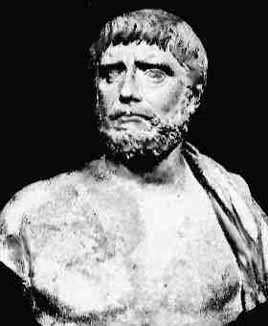 |
Profession:
Philosopher
Nationality: Greek
Place of Birth: Ancient
Miletus, Ionia
Most important Idea: First person known to have explained
natural phenomena by rational rather than by supernatural means.
Most Important Writing:
None
Recommended Web Page:
University of St. Andrews, Scotland |
2. Anaximander (610-545 B. C.)
|
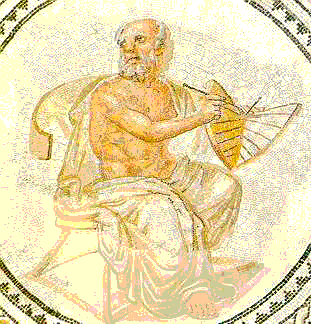
|
Profession:
Philosopher
Nationality: Greek
Place of Birth: Ancient
Miletus, Ionia
Most important Idea: Ruling principle or
arche' (απρχή))
of all things is boundlessness
(απειρον),
i.e., that which has no boundaries.
Most Important Writing:
None have survived
Recommended Web Page:
Internet
Encyclopedia of Philosophy |
3. Pythagoras (569-475 B. C.)
|
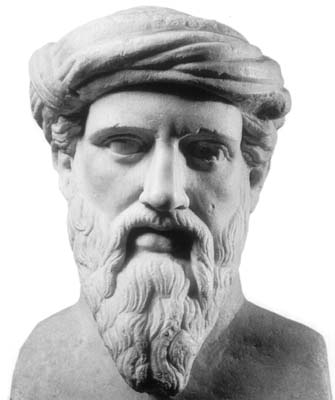 |
Profession:
Philosopher
Nationality: Greek
Place of Birth: Ancient
Samos, Ionia
Most important Idea: Principles of music provide the key to understanding the nature of the
Cosmos.
Most Important Writing:
None
Recommended Web Page:
Thoughts of Pythagoras |
4.
Heraclitus (ca. 535-475 B. C.)
|
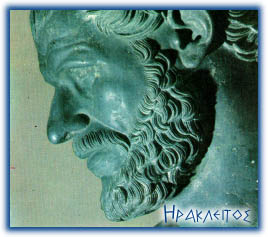
|
Profession:
Philosopher
Nationality: Greek
Place of Birth: Ancient
Ephesus, Ionia
Most important Idea: Concept of the Logos (
λόγος).
Most Important Writing:
On Nature (only fragments survive) Recommended Web Page:
Philosophy of Heraclitus |
5. Zarathustra (ca. 630-550 B. C.)
|
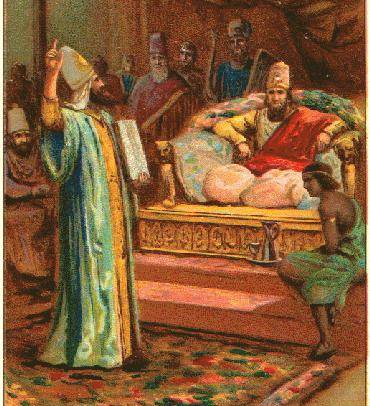
|
Profession:
Prophet
Nationality: Persian
Place of Birth:
Azerbaijan, Northern Persia
(Iran)
Most important Idea: Structure of the Cosmos is dualistic in nature.
Most Important Writing:
May have written some of the Gathas (hymns)
Recommended Web Page:
Shahriar Shahriari's
Web Site |
6. Mahavira (599-527 B.C.)
|
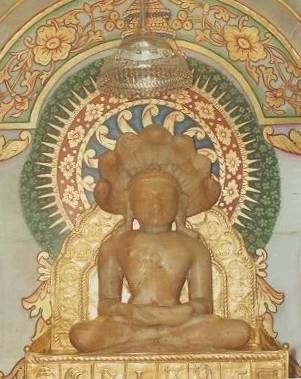
|
Profession:
Religious Thinker Nationality:
Indian
Place of Birth: Kundalpura, Northeast India
Most important Idea: Reformer of Jainism -- Mahavira believed the universe to be self-sustaining
without a beginning; this universe is endless and operates in accordance
with natural laws.
Most Important Writing:
None
Recommended Web Page:
Urantia Book Essay |
7. Siddhartha
Gautama (563-483 B.C.)
|
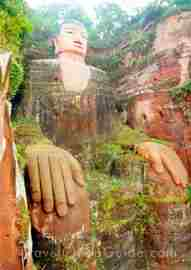
|
Profession:
Psychologist (Founder of Buddhism) Nationality:
Indian
Place of Birth: Nepal
Most important Idea: Believed that the
phenomenal world was characterized by three basic principles: 1)
Most Important Writing:
None
Recommended Web Page:
Consciousness
Concepts of the Buddha |
8. Lao Tzu (570-490
B.C.)
|
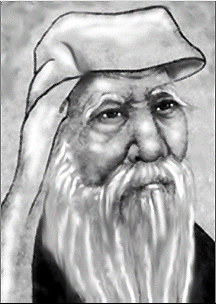
|
Profession:
Philosopher Nationality:
China
Place of Birth: Henan Province, China
Most important Idea: Concept of the Tao (Dao) -- a cosmic unity
underlying all phenomena.
Most Important Writing: Tao te Ching
(attributed to him)
Recommended Web Page:
Urantia Book Essay |
9.
Confucius (551-479 B.C.)
|
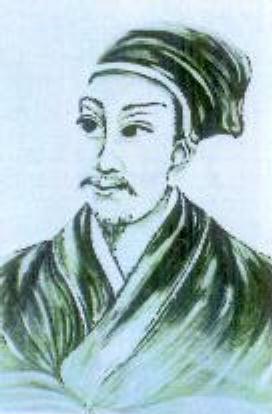
|
Profession:
Philosopher Nationality:
China
Place of Birth:
Province of Lu, China
Most important Idea: Performance of appropriate music and dance allows the practitioner to create
within oneself the wisdom concerning the order of the world and the heavens.
Most Important Writing:
None
Recommended Web Page:
Urantia Book Essay |
|